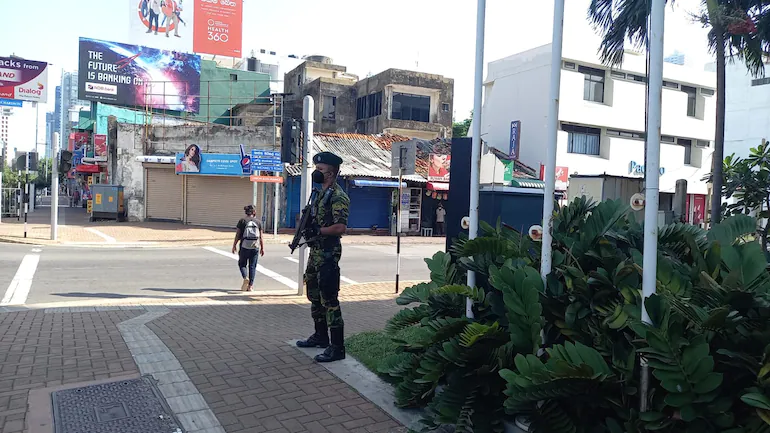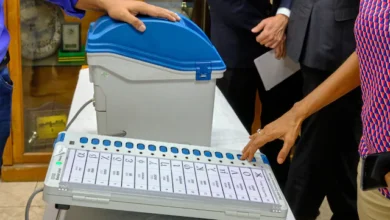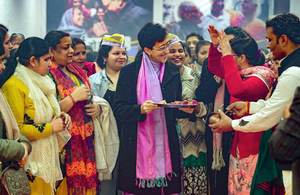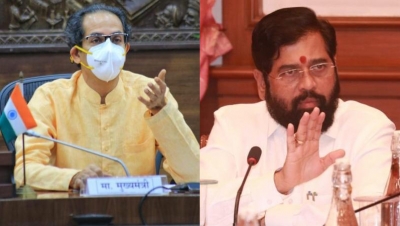Sri Lanka: 36 Hrs Curfew; Opposition Staged Protests

Colombo, Apr 3: Amid mass protests against the island nation’s acute economic crisis, Sri Lankan Opposition defies the weekend curfew imposed by the government. More than 100 people joined the march by Opposition leaders in capital city here, before it was stopped near the home of opposition leader Sajith Premadasa by police and soldiers.
The Sri Lankan government on Saturday blocked access to all social media platforms, including Facebook, Twitter, Instagram, WhatsApp and YouTube, in its latest bid to quell protests against President Gotabaya Rajapaksa.
“The social media block is temporary and imposed due to special instructions given by the Defence Ministry, the country’s Telecommunications Regulatory Commission said. “It was imposed in the interests of the country and people to maintain calm,” Jayantha de Silva, the Commission’s Chairman, told to news agencies.
The curfew, which began on Saturday 6pm, has been imposed till Monday 6 am – a period that covers planned mass antigovernmental protests against worsening shortages of fuel, food and medicines. At least 664 people have been arrested for violating the curfew, officials said.
The curfew and state of emergency in the near-bankrupt country came as social media posts called for protests on Sunday. “Do not be deterred by tear gas, very soon they will run out of dollars to re-stock,” said one post encouraging people to demonstrate even if police attempt to break up gatherings.
“#GoHomeRajapaksas” and “#GotaGoHome” have been trending for days on Twitter and Facebook in the island nation, which is battling severe shortages of essentials, sharp price rises and crippling power cuts in its most painful downturn since independence from Britain in 1948.
The tough laws allow the military to arrest and detain suspects for long periods without trial. In his defence, Rajapaksa has said that the state of emergency was needed to protect public order and maintain essential supplies and services.
The result of economic mismanagement by successive governments – has been compounded by the COVID-19 pandemic, which has hit tourism and remittances. It has also marked a sharp turnaround in political support for Rajapaksa, who swept to power in 2019 promising stability.
The government has said it is seeking a bailout from the International Monetary Fund and loans from India and China. New Delhi recently announced that it will extend a USD 1 billion line of credit to Colombo as part of its financial assistance to the country to deal with the economic crisis following a previous USD 500 billion line of credit (LoC) in February to help it purchase petroleum products.
India also delivered a consignment of 40,000 tonnes of diesel to Sri Lanka on Saturday, the fourth such assistance from New Delhi, to mitigate the spike in power cuts in the island nation.






